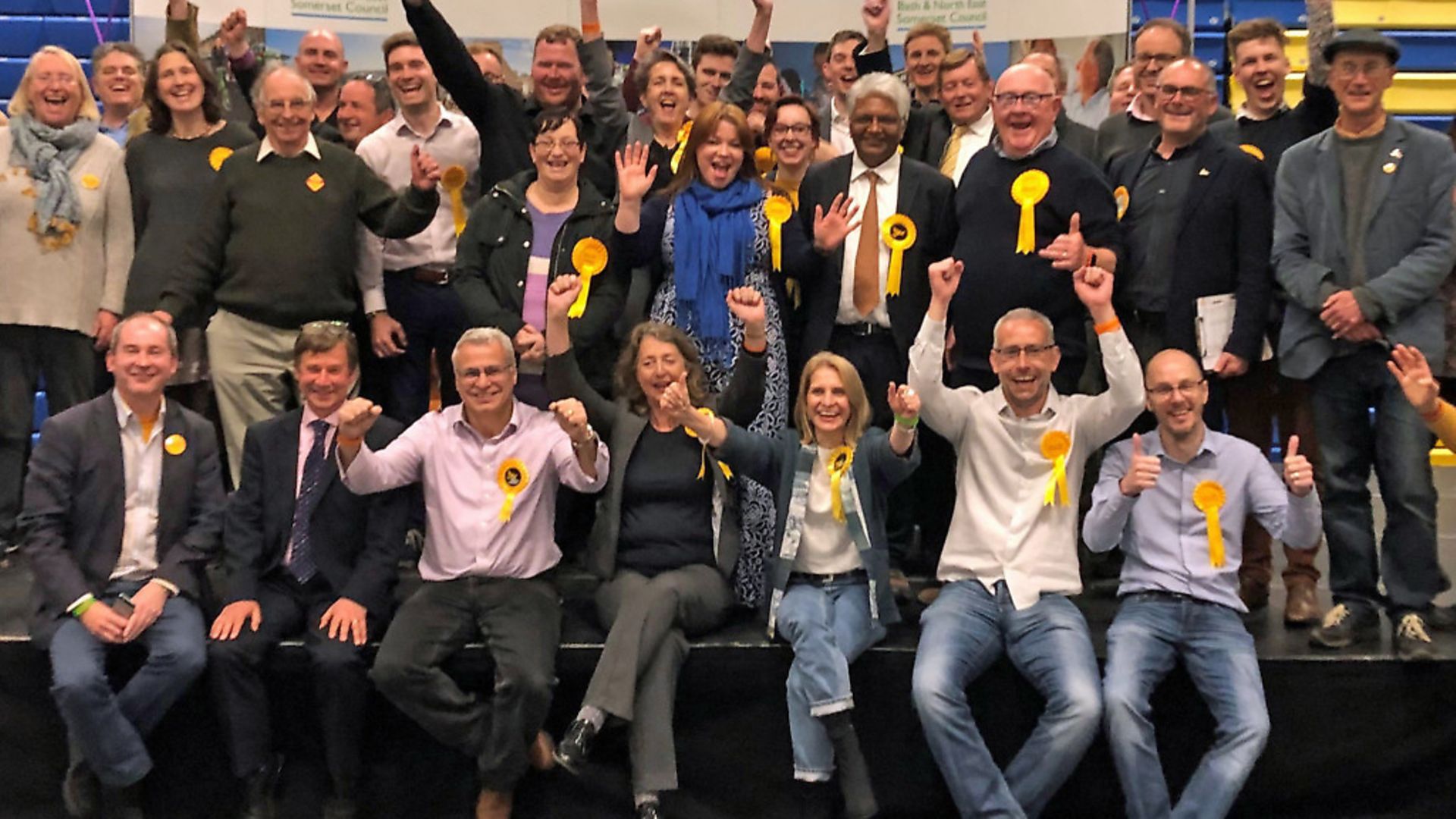
Voters have vented their anger at the two main parties over the continuing Brexit deadlock as both the Tories and Labour suffered losses in the English council elections, and have turned to anti-Brexit party the Liberal Democrats.
The Conservatives had been braced for a tough night amid frustration at Theresa May’s failure to take Britain out of the EU on March 29th.
However Labour also struggled, losing seats at a point in the electoral cycle when they could expect to be making significant gains at the expense of the government.
By contrast the Lib Dems were enjoying a good night, with some predictions that they could pick up as many as 500 seats.
With results in from 96 of the 248 councils where elections are being held, the Conservatives had lost 257 seats and Labour 45 while the Lib Dems had gained 183 and the Greens 26.
There were 62 more independent councillors while UKIP lost five.
The Conservatives lost Peterborough, Basildon, Southend, Worcester, St Albans, Welwyn Hatfield, Folkestone and Hythe, and Tandridge to no overall control while Winchester, Cotswold and Bath and North East Somerset and Hinckley and Bosworth fell to the Liberal Democrats with North Kesteven going to independents.
However the party held on in the bellwether council of Swindon, seen as a possible Labour gain, and took Walsall and North East Lincolnshire from no overall control.
Education minister Nadhim Zahawi said the losses reflected the anger among voters over Brexit and called on MPs to rally behind Theresa May’s deal.
‘Because we haven’t been able to deliver Brexit on March 29 we are seeing these results,’ he told the BBC.
‘The prime minister has stretched every sinew, she has tried everything. We can keep blaming the Prime Minister, ultimately it is in the hands of us parliamentarians.’
However the senior Tory Brexiteer MP Sir Bernard Jenkin said voters overwhelmingly believed that she had ‘lost the plot’ and that the time had come for a change of leader.
‘They can see that she has lost the plot. They can see she is not in control of events,’ he said.
‘Certainly among Conservative activists and council candidates there is an almost universal feeling that it is time for her to move on.’
His comments were echoed by former cabinet minister Priti Patel who said voters saw May as ‘part of the problem’.
‘I just don’t think we can continue like this. We need change, we need a change of leadership. Perhaps the time has now come for that,’ she told the BBC.
Labour meanwhile lost control in Bolsover, Hartlepool and Wirral and the mayoralty in Middlesbrough, where its vote was down 11% as independent Andy Preston was elected, although it did gain Trafford from no overall control.
Even where the party held on in its traditional stronghold of Sunderland, which voted heavily for Brexit in the 2016 referendum, it still lost 10 council seats.
Shadow international trade secretary Barry Gardiner said the party was hoping to at least regain the 200 seats it lost when these seats were last contested in 2015.
He acknowledged, however, that it had been a difficult to get across the party’s position on Brexit, which is to back a second referendum in certain circumstances, on the doorstep.
‘If a party is seen to be speaking with two voices, it is very difficult to connect when the policy of the party is a complex policy,’ he told the BBC.
Polling expert Professor Sir John Curtice of Strathclyde University said the voters appeared to be punishing whichever of the main two parties was in control in their area.
‘The Labour Party is losing where they are strong historically, the Conservatives are losing where they are strong historically. It’s a plague on all your houses,’ he said.
In contrast, the Liberal Democrats, who fought on a Remain platform, were in buoyant mood.
As well as picking up councils from the Tories, they took north Norfolk and north Devon from no overall control.
Deputy leader Jo Swinson said: ‘Out and about across the country, the mood has been positive. If we can get into the triple figures of gains that would be a really, really good night,.
‘That would be part of that Lib Dem fightback that is happening.’
Warning: Illegal string offset 'link_id' in /mnt/storage/stage/www/wp-includes/bookmark.php on line 357
Notice: Trying to get property 'link_id' of non-object in /mnt/storage/stage/www/wp-includes/bookmark.php on line 37






